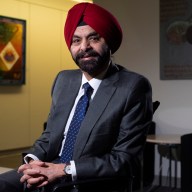By Philip Blenkinsop
BRUSSELS (Reuters) – A French politician who introduced a swathe of European financial regulation after the financial crisis was named on Wednesday to represent Brussels in negotiations on Britain’s exit from the European Union, drawing a cool response in London. European Commission President Jean-Claude Juncker selected Gaullist Michel Barnier, a former EU commissioner and center-right French foreign and agriculture minister, in a choice that may antagonize Britain’s ruling euroskeptic Conservatives. In London, a spokeswoman for Prime Minister Theresa May said Britain looked forward to working “with representatives from the member states, the Council and the Commission to ensure an orderly departure of the UK from the EU”. She pointedly did not mention Barnier by name, and initial British media reaction was hostile.
“Hard to think of a more anti-British figure. Declaration of war,” Tom Newton Dunn, political editor of the pro-Brexit Sun newspaper, said on Twitter.
London’s Evening Standard daily branded Barnier the “scourge of the City” – the financial district of the British capital.
However, a former British Europe minister, Denis MacShane of the pro-European opposition Labour party, said Barnier was “pro-Brit but also pro-EU”, and had the experience to understand that key decisions on future ties would be taken in Berlin, Paris and other national capitals rather than by anyone in Brussels. Barnier will take up his post on Oct. 1, the EU executive said in a statement. He will report directly to Juncker and have the rank of a director-general of a Commission department, with all necessary resources at his disposal. Barnier, 65, was a commissioner from 2010 to 2014, in charge of internal market and services. He was involved in reforms of financial services and in the establishment of a European banking union with a single supervisor for euro zone banks. Juncker said Barnier was a skilled negotiator with rich experience in major policy areas and an extensive network of contacts in the capitals of EU member states.
“I wanted an experienced politician for this difficult job,” Juncker said. “I am sure that he will live up to this new challenge and help us to develop a new partnership with the United Kingdom after it will have left the European Union.” SOUNDINGS
May has said she does not expect to trigger the EU treaty’s Article 50 exit clause before the end of this year. She has taken soundings on initial visits to Berlin, Paris and Rome and spoken by telephone with the heads of EU institutions. But her government has yet to determine what kind of relationship it wants with the bloc after Britain withdraws. After talks with Italian Prime Minister Matteo Renzi on Wednesday, she said Britain’s future ties with the EU may not mirror any of the existing relationships between non-EU countries and the bloc. Given the British electorate’s determination to control migration from EU countries, opinions among leading Conservatives range from a simple free trade agreement to as complete an access to the EU’s lucrative single market as possible. EU partners say that freedom of movement of workers is a pivotal condition for full market access. It is also unclear who will lead the exit negotiations on the British side, although veteran Conservative euroskeptic David Davis, was appointed “Secretary of State for Exiting the European Union” in May’s cabinet. EU leaders have said there will be no formal or informal negotiations with London until it gives notice under Article 50, starting a two-year countdown to withdrawal.
Barnier’s task will be to prepare the ground internally in the meantime and once the divorce process is triggered, to conduct talks with the British authorities and all other EU and national interlocutors, an EU official said. Michael McKee, a financial services lawyer at DLA Piper in London, said Barnier had a good grasp of technical and political issues associated with the single market and financial services.
“It does suggest to some degree that Juncker sees the single market and financial services as core elements of the negotiations, which is not a surprise,” McKee told Reuters.
Asked whether Juncker had consulted Britain and other major EU players before choosing such a senior political figure, a Commission source said “all the relevant parameters” had been covered, noting that Barnier embodied the Franco-German axis at the heart of the bloc and had wide political contacts. European Council President Donald Tusk, who chairs EU summits, had previously named Belgian EU official Didier Seeuws to oversee preparations for the Brexit negotiations on behalf of member governments, sparking a minor turf war in Brussels. Barnier presided over a frenzy of European financial rulemaking, not all welcomed by Britain.
More than 40 sets of rules were rushed onto the statute book, most based on global responses to the financial crisis. A hawkish European Parliament also insisted on caps for bankers’ bonuses, a reform Britain failed to stop. The Frenchman, who co-organized the 1992 Winter Olympics in his home region of Albertville and was a close ally of former Gaullist President Jacques Chirac, prided himself on working mostly in consensus with the City, London’s financial center. He worked hard to improve his spoken English on the job. Sharon Bowles, a former British Liberal Democrat EU lawmaker who worked closely with Barnier when she chaired the European Parliament’s economic affairs committee, said his appointment “makes sense”. “He knows about financial services and the UK as well as other things and has done a lot of hard negotiating. He is not as inflexible as people said and we worked well together,” Bowles told Reuters in an email. Barnier was succeeded in Brussels by Briton Jonathan Hill as commissioner in charge of financial service. Hill, who set about building a European capital markets union while trying to give the financial sector a breather from fresh regulation, resigned after Britain voted to leave the EU in a June 23 referendum. (Additional reporting by Huw Jones, Estelle Shirbon and Jeremy Gaunt in London; Writing by Paul Taylor; Editing by Mark Heinrich)
















